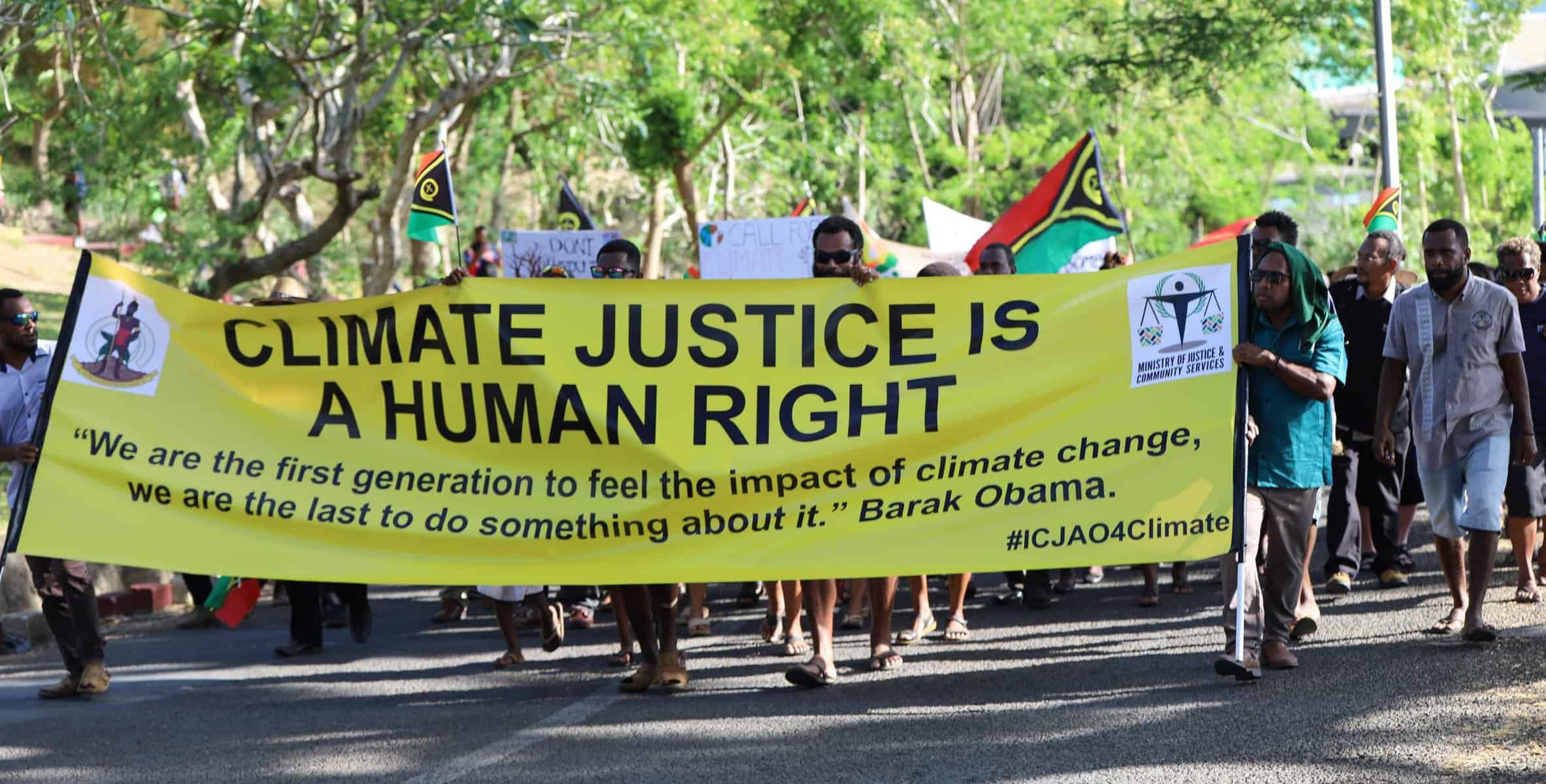Pacific Island nations hope the climate change case they’ve brought to the UN court will help overcome the shortcomings of international negotiations and spur greater action, Vanuatu’s attorney-general said in an interview as governments prepared for the public hearings.
The case at the International Court of Justice, or ICJ, is not about assigning blame or instigating punitive measures, but aims to achieve a ruling with an undeniable moral authority, Arnold Kiel Loughman told Radio Free Asia.
“It’s not about suing a particular state or a particular group of states,” he said. “It’s also not just about the small island countries of the Pacific or the Caribbean or anywhere. It’s for the global community.”
In 2023 more than 130 nations backed Vanuatu’s push at the UN for the ICJ to issue an advisory opinion on states’ obligations under international law to prevent human-driven climate change and the legal consequences of failing to act. The Melanesian country of 330,000 people, about 1,750 kilometers (1,087 miles) east of northern Australia, has also lobbied for an emissions levy on global shipping.
The court’s ruling would be non-binding. China and the United States, the two largest emitters of planet-warming gasses from fossil fuels, did not back the UN General Assembly resolution that called for the ICJ opinion.
Public hearings are due to start on 02 December after the UN court based in The Hague, in the Netherlands, received 91 written statements from governments and international organisations – the highest number of written statements ever filed in an advisory proceeding before the court.
The court also received dozens of written responses to the initial submissions. It extended the deadline for written submissions several times.
China and the U.S both made written submissions, as have organisations such as OPEC and the International Union for Conservation of Nature. Parties to the case can see the submissions but they’re not yet public.
“We already have an idea what those opposing arguments are like. Both sides have a pretty good idea of what the other side is saying,” said Loughman.
“Basically, they’re saying they shouldn’t be liable,” he said. “They will come up with any argument they can find to say they’re not responsible for adverse impacts of climate change.”
Vanuatu’s spearheading of the ICJ case has amplified the voices of small island nations whose national interests and even existence are frequently overlooked as more powerful nations jostle on the international stage.
Collectively, Pacific Island nations have made a minute contribution to greenhouse gas emissions but warn they could suffer the brunt of negative consequences from higher global temperatures.
Tropical cyclones, for example, could become more intense and destructive. Sea-level rise could outpace the natural growth of low-lying coral atoll nations, making them prone to inundation by even normal tides.
A chief concern of island nations is getting access to funds – so called climate finance – to help mitigate the risks they face.
“We’ve had COP meetings after COP meetings, negotiations and negotiations with respect to climate finance, and as far as small island countries are concerned, we’re not seeing anything,” Loughman said.
“We’re hoping it [an ICJ opinion] would provide some moral authority. A decision coming from such an institution can’t be ignored,” he said. “It carries weight. You simply can’t ignore it when you’re sitting at the table talking about climate finance.”
The 2023 report from the UN’s Intergovernmental Panel on Climate Change said greenhouse gasses released by fossil fuels and other human activity had “unequivocally caused global warming.” The average temperature between 2011-2020 was 1.1 degrees Celsius higher than 1850-1900.
It said the increase in average surface temperature was already contributing to climate and weather extremes around the globe such as heatwaves and droughts and the intensity of rains and tropical cyclones. The internationally agreed goal of limiting the temperature increase to 1.5 C is still achievable though time is running out, the report said.
